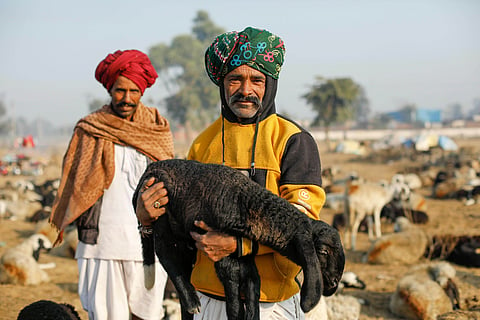
Pastoralism is deeply tied to the culture and traditions of Rajasthan. The lifestyle influences art, music, clothing and even the social structure of these communities.
Many of the pastoral groups also have a strong sense of identity linked to their herding practices.
Historically, nomadic pastoralism has been ecologically sustainable, as the movement of the herders prevents overgrazing in any one location.
However, with the increasing pressures of modern development and environmental degradation, the balance of this system is becoming strained.
Nomadic pastoralists face numerous challenges, including climate change, shrinking grazing lands, government policies that restrict movement, and pressures from urbanisation.
These challenges have made it difficult for many pastoral communities to sustain their traditional ways of life. For instance, the introduction of fencing, land privatisation, and agricultural expansion often disrupt their migration routes.